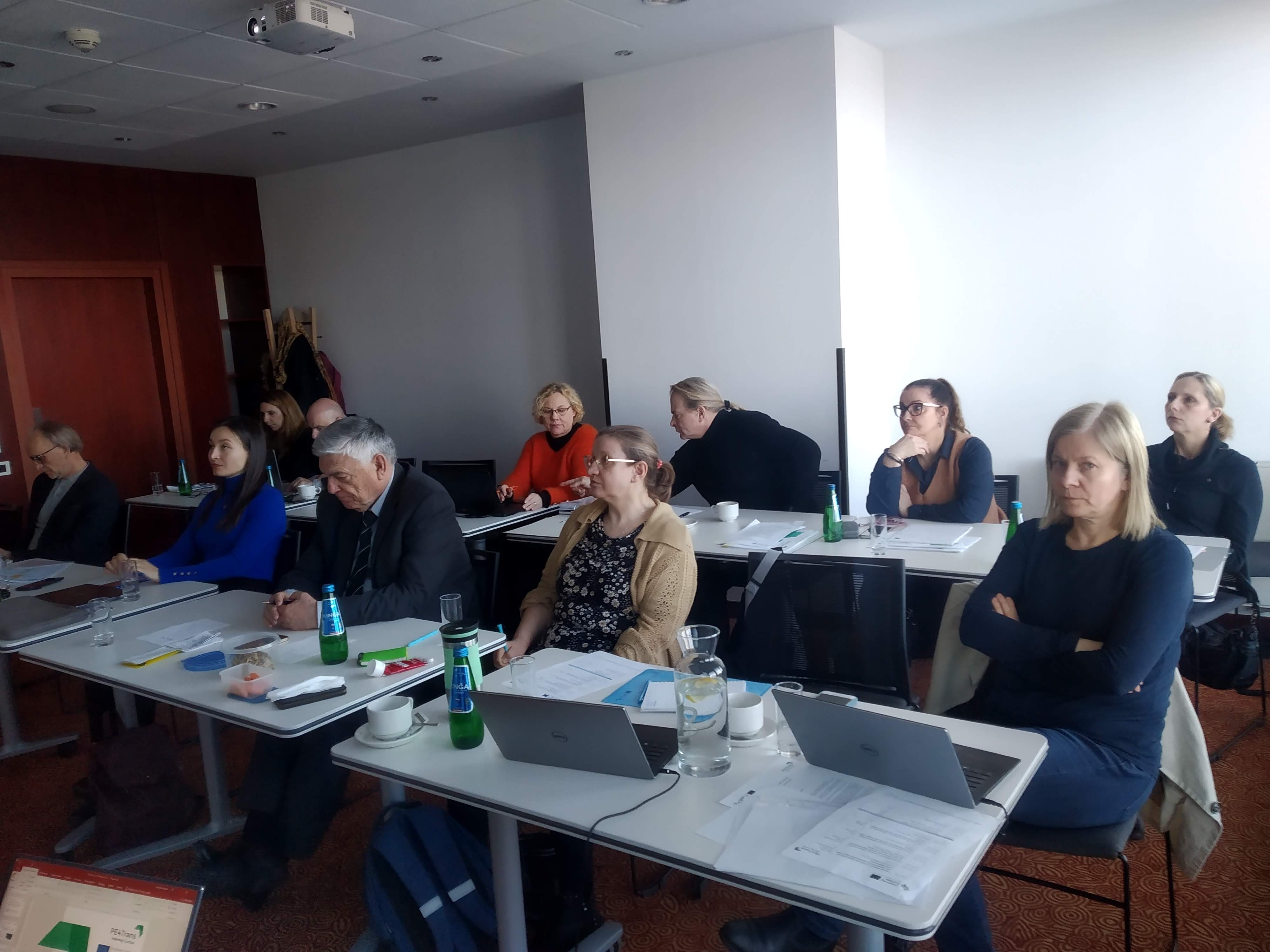
PE4Trans is finalising project activities
PE4Trans Monitoring workshop and Steering Group meeting
PE4Trans addresses the issue of potential for improvement of public transport policies by including citizens to the process of design and implementation of sustainable transport strategies and plans with the view to change peoples’ mobility habits and routines incorporating findings of behavioural sciences. Regions and cities across Europe invest significant funds in public transport infrastructures, introduce incentives and regulations as well as information campaigns with the view to reduce carbon footprint by stimulating peoples more pro-environmental behaviours. P4Trans partners adopt the approach “for the people, by the people and with the people” as a guiding principle for the possible policy improvements, which go in two directions: • Influencing the citizens’ behavioural change using knowledge and good practices of environmental solutions based on economy, sociology and psychology developments to stimulate people towards more sustainable routines and habits, • Launching in the participating territories transferable mechanisms of public engagement in policy makings processes A significant change that project will bring is the transferable frames for dialogue and mutual learning process involving expertsto bring state of the art insights and provide feedback, policy makers shaping their short and long term agendas and citizens who will integrate their hopes and concerns, viewpoints and ideas adding significant value to the process. PE4Trans will focus mainly on improvements in the policy instrument governance in 5 participating territories (3 of them belonging to Growth & Jobs programmes and 2 financed from local budgets). As a result specific solutions will be elaborated in a participatory way in each partner territory enhancing the use of sustainable mobility solutions and contributing to substantial reduction of the carbon footprint, both policy-makers and inhabitants benefitting from the outcomes.
€1,409,791.00
Low-carbon economy
The project focuses on the Measure 3.3.4 of Regional Operational Programme of Wielkopolskie 2014-2020 - Support of low carbon strategies, including urban mobility within ITI for the development of Kalisz-Ostrów Agglomeration - hereinafter referred to as ROP. It aims to contribute to low carbon economy objectives through the support of low gas emission public transport, strengthening the use of sustainable transport, including cycling and walking, by the Kalisz-Ostrów Agglomeration inhabitants and reduction of pollution on the territory. ROP foresees integrated investments projects combined the promotion actions. Thorough analysis the projects submitted for ROP makes it evident that they must be strongly supported at the implementation stage to gain better synergies. In addition application of the public engagement approach and learning people’s needs and motivations is strongly needed to influence on citizens behaviours and habits towards sustainable transport. There are little experiences on the territory both on public engagement and influencing the citizen behaviours. But the ambition of the Kalisz-Ostrów Agglomeration is to introduce the public participation approach on different fields and stages of policy making. The project beneficiaries are mainly the municipalities - members of the Agglomeration Association, which makes it easier to introduce coordination activities and gain synergy effects. There is no additional funding required for the approved regional projects.
For the 2014 to 2020 programming period Local Enterprise Partnerships (LEP) in England are responsible for designing and delivering strategies on how best to use this funding. Each LEP area receives a national allocation from the funds for seven years to deliver its European Structural and Investment Funds (ESIF) strategy which must be spent in line with a set of overarching priorities set out in the EU regulations. The Coventry and Warwickshire LEP (CWLEP) area has a notional allocation of 135.5m Euro. CWLEP is determined to increase employment and wealth opportunities for all. Under the Priority 4: Low Carbon economy, C&WLEP focuses on integrated strategic approaches to reduce greenhouse gas emissions by increasing levels of sustainable urban mobility, particularly through:
• Investments in actions aimed at introducing innovative environmentally friendly and low-carbon technologies (for example, alternative fuel stations or charging points)
• Cycle paths where they are part of an integrated approach to GHG reductions and support improved access to key employment sites.
Having recognized the economical relevance of low-carbon economy the local authorities search for strengthening actions towards its social dimension in order to enhance the uptake of alternative transport solutions. Public authorities recognise also the vital importance of engaging communities in order to meet carbon reduction targets but lack specific schemes and tested practices.
The Regional Authority of Central Macedonia has set as a priority, through the Priority Axis 4 of the ROP of Central Macedonia 2014-2020, the ‘support of the shift towards a low-carbon economy in all sectors’.The Investment Priority 4e emphasizes the promotion of low-carbon strategies for all type of regions, especially for urban areas, including the promotion of sustainable urban mobility. Through the specific objective 4e1, the policy instrument aims to promote sustainable urban mobility within the Region of Central Macedonia (RCM).
The fulfillment of this objective can be realized, among others, through investment projects in the field of CO2 emissions reduction and sustainable mobility, as well as dissemination activities for raising awareness of the urban areas’ residents on sustainable mobility. In order to achieve the goals of the instrument and to reduce the private car usage shifting travelers to other more environmentally friendly modes of transport, ‘hard’ investments (such as: cycling and pedestrian paths, introduction of ITS, establishment of use of “clean fuels”) should be definitely combined with soft ones, e.g. provision of adequate information, awareness of citizens. There are a lot of measures motivating people to use Public Transport and the engagement of public in their development will add value to the results. However, RCM has less experience both in using collective intelligence methods and creating incentives for people’s mobility behavioural change.
INNOLID2020+ - Integrated and Sustainable Urban Development Strategy is the most important policy instrument that has been designed and developed by the City of Valladolid under the umbrella of sustainable urban development. INNOLID 2020+ is a strategy that establishes integrated actions to tackle economic, sustainable, climate, social and demographic challenges.
INNOLID2020+ runs between 2014 and 2020 with the aim of alignment the city of Valladolid to European Strategy Europe 2020 for a smart, sustainable and integrated growth.
Taking into account the importance of sustainable urban development and the special contribution of cities to Europe 2020 Strategy, INNOLID 2020+ has been designed under a holistic approach. It is the umbrella of all initiatives and programs that boost the city of Valladolid towards a future of social and economic growth, developed by sustainable, efficient, and innovative and transparency principles.
From four thematic objectives (TO) of INNOLID2020+, the work within PE4TRANS will focus on TO4: Supporting the shift towards a low-carbon economy in all sectors) that it is also linked to our Sustainable Urban Mobility Plan (SUMP) .
Different actions lines have been designed underpinned by this TO, for example Pedestrian green routes and bicycle lines, but there are not a specific and transversal action about how to engage our citizens for the use of these sustainable means of transport.
Among others, the NVP serves the interest and needs of public transport. It has a central importance for the sufficient traffic management, the economical transport arrangements, the integrated local traffic control and agreed tariffs / timetables in the arrangement of public transport by the authorities, the licensing authorities and transport companies.
In the current NVP 2011 of the DGB, sustainable mobility is of great significance. In addition to the aim of increasing the attractiveness of public transport in the area of the bus route network through regional and urban bus lines, as well as the expansion of the infrastructure, the approach of alternative operating forms, i.e. area-wide call-a bus offer / citizen bus, has been pursued for a long time. The NVP is currently being updated, also due to the reactivation of regional rail services in the DGB. In addition to the adaptation of the bus network, topics such as alternative / environmentally friendly drive technologies will also be taken into account in order to increase sustainable mobility.
The aim with the next update (2022/2023) is to increase the establishment of sustainable mobility, which is not sufficiently specific as yet, in order to positively change the NVP. Within the framework of the project, important findings can be gathered. A specified commitment
to sustainable mobility in the NVP can also be beneficial for other municipal authorities in Germany.

PE4Trans Monitoring workshop and Steering Group meeting
We don't just cause footprint, but also suffer it. In addition to CO2 emissions, other pollutants that we produce, and we are not aware of it, are very harmful.
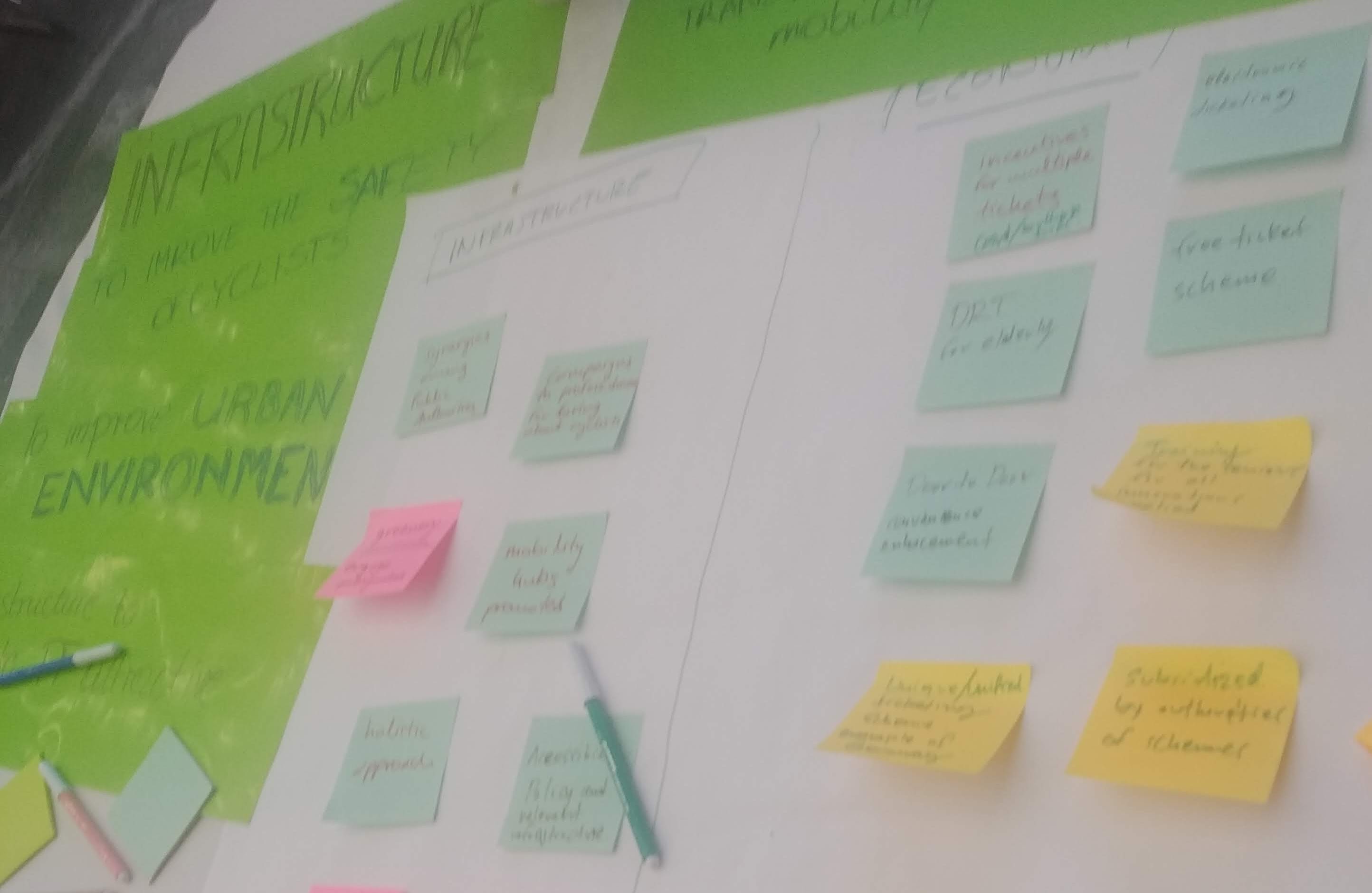
PE4Trans actions on a good track
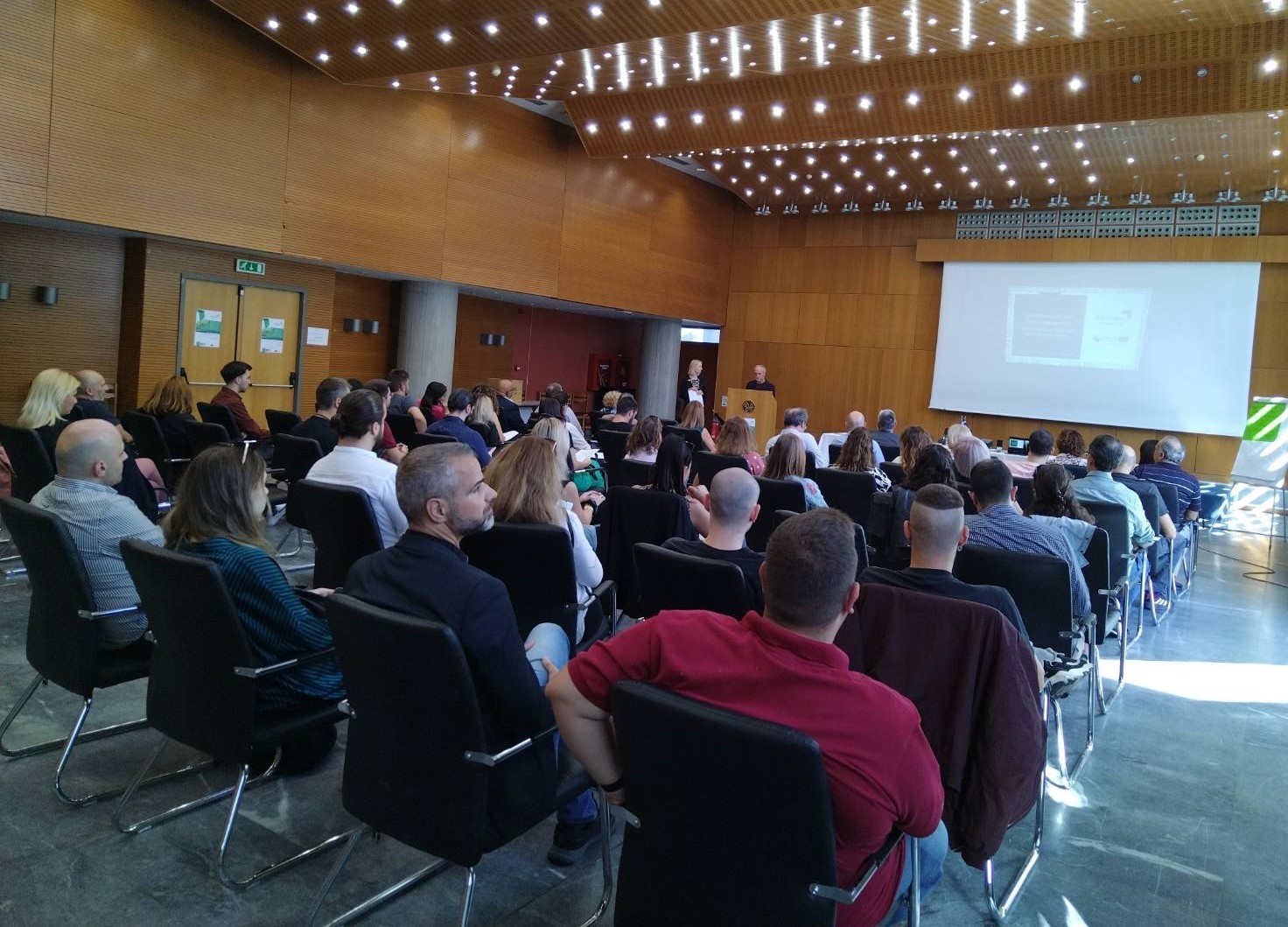
PE4Trans conference “Sustainable mobility and citizens’ engagement: Two driving forces towards a low-carbon economy” held in Thessaloniki, Greece.
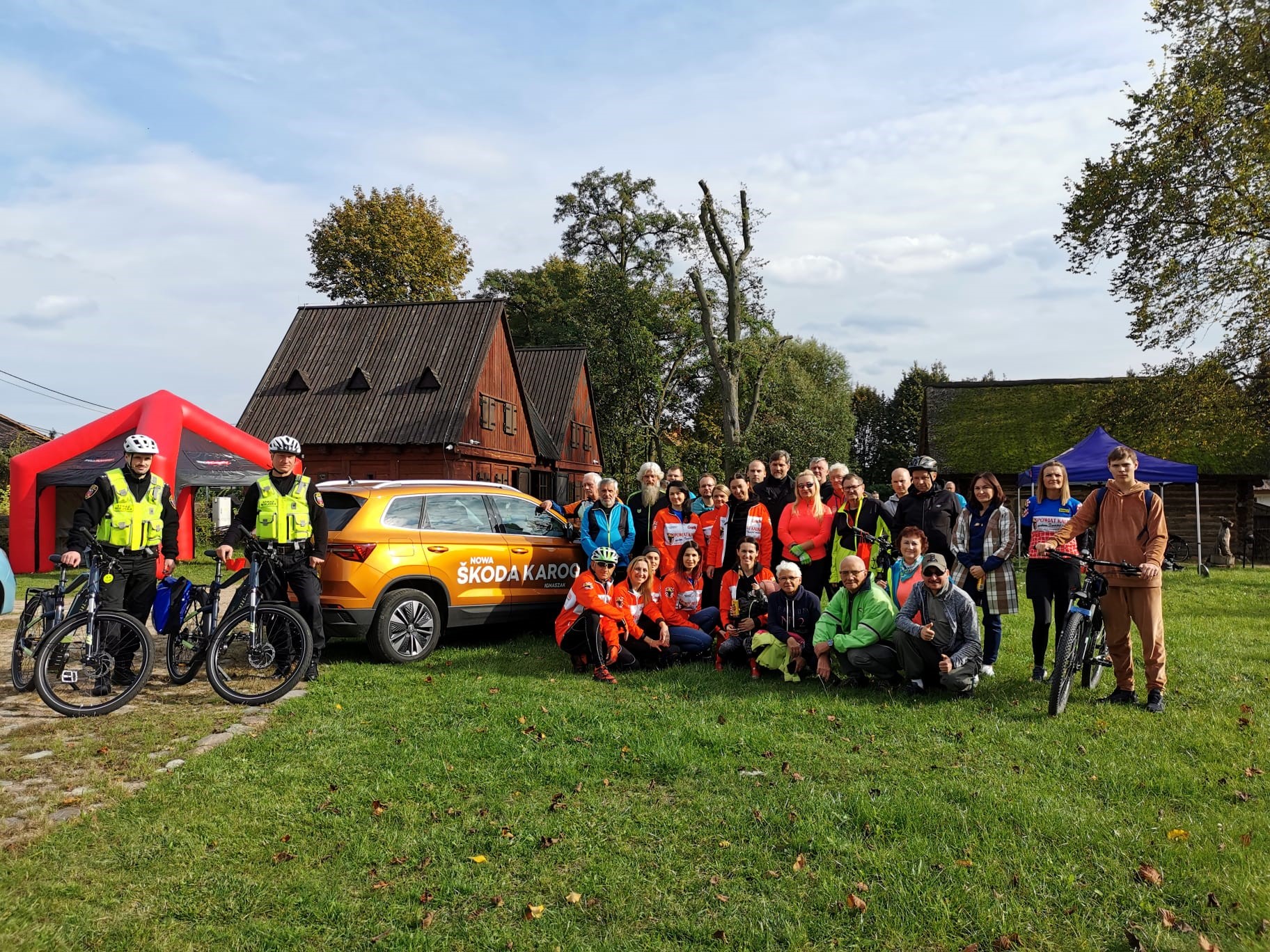
"Family Bike Rally through the Kalisko-Ostrowska Agglomeration along the Trail of Wooden Churches" encourage cycling for leisure and commuting.

Approx. 25 thousand 9-Euro tickets were issued in 3 months in Grafschaft Bentheim alone
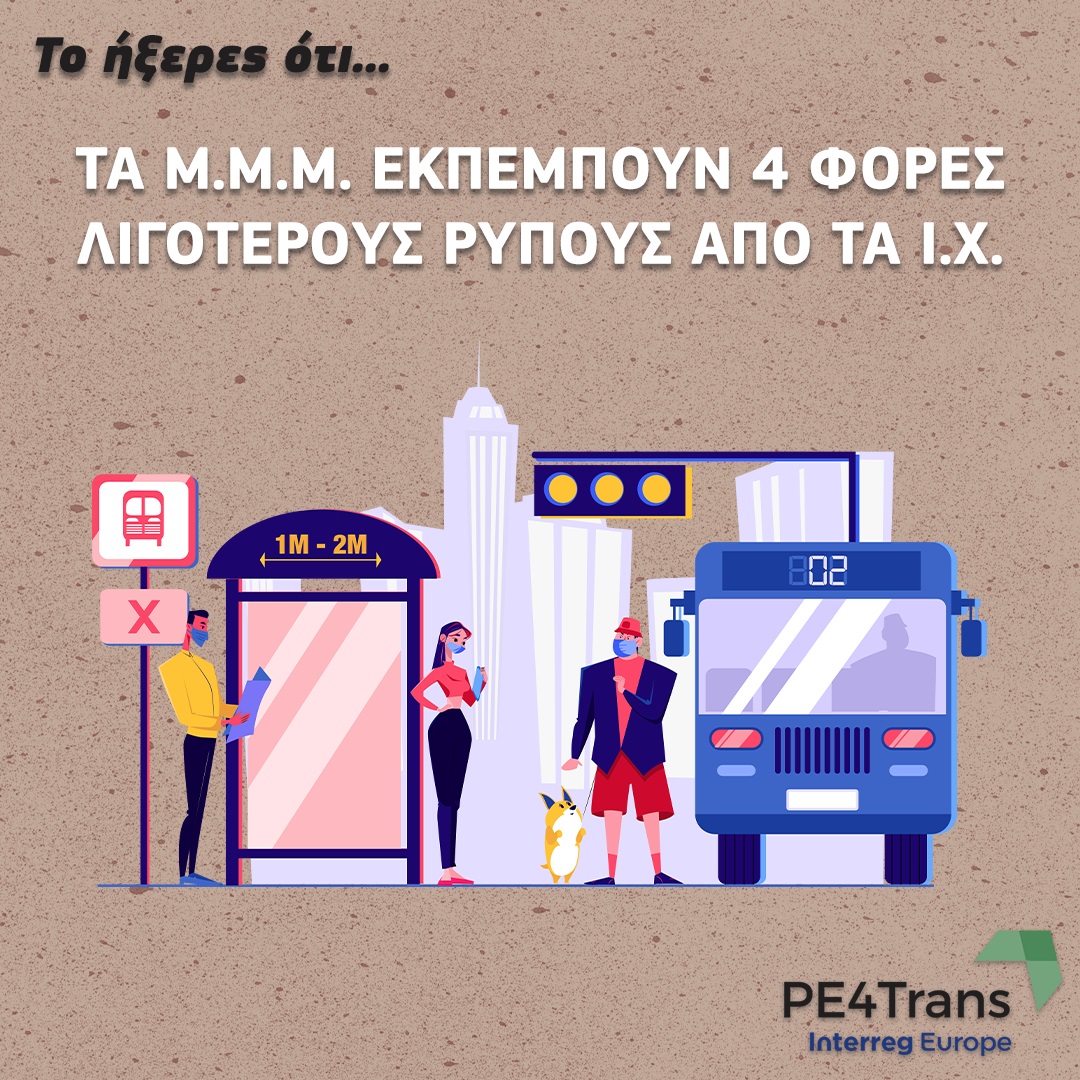
Action Plan implementation: a social media campaign on sustainable mobility by the Thessaloniki's Transport Authority (OSETh)
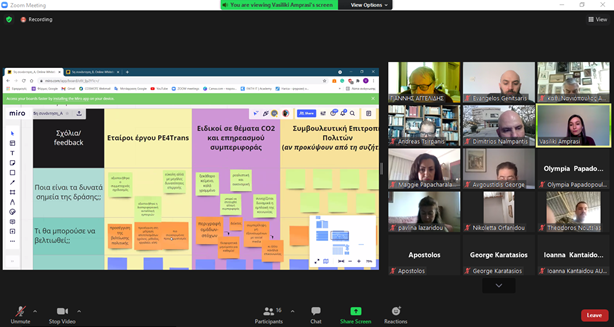
Wrap up of the meeting completing the participatory process in a form of Citizen Panel
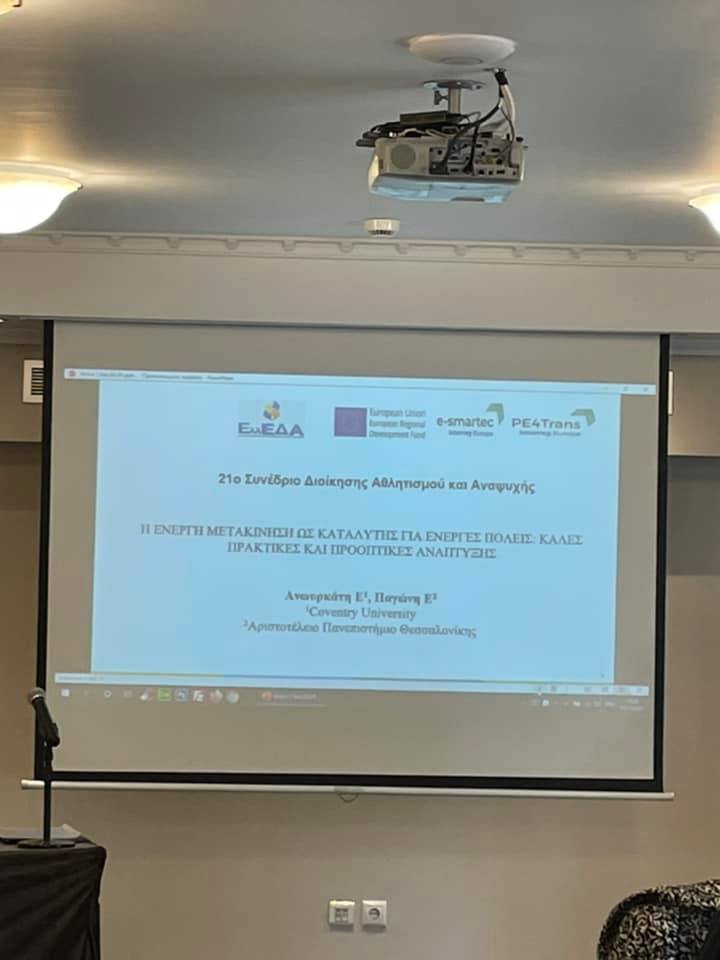
150 delegates learned about GPs and co-creation techniques developed within PE4Trans
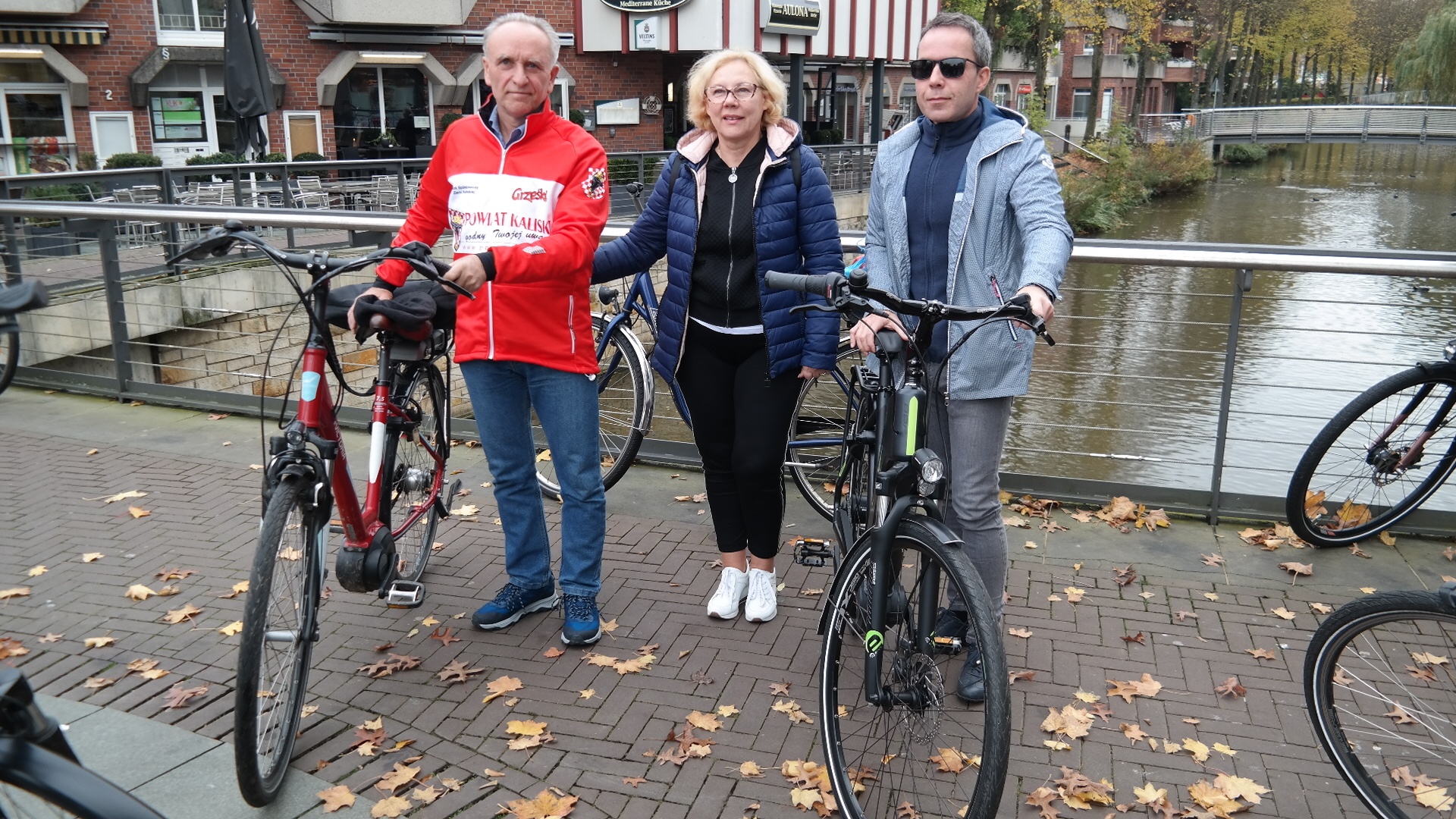
Project team and stakeholders from Kalisz-Ostrów Agglomeration (PL) visited Graftshaft Bentheim (DE) on 25-27 October.